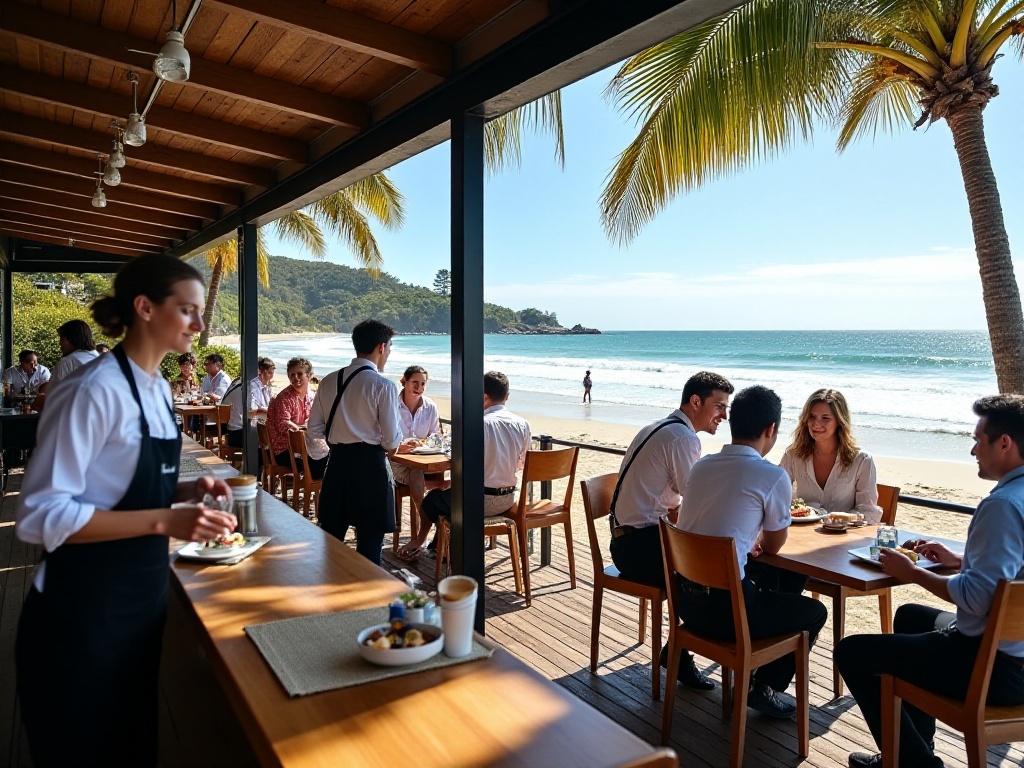
Origins
Have you ever dreamed of spending a ski season in the Canadian Rockies? As a travel blogger who has experienced a working holiday in Canada, I want to tell you: this dream isn't hard to achieve. Let me walk you through how to have a perfect working holiday in Canada.
I remember that winter I spent in Whistler, opening my cabin door in the morning to be greeted by a vast white snowscape and distant majestic peaks. This lifestyle is truly captivating, and it's much easier than you might imagine.
Basic Preparation
Before starting your Canadian working holiday, you need to understand some basic information. First is the visa issue. Canada's working holiday visa (International Experience Canada, or IEC) is mainly for young people aged 18-35, allowing stays of up to 24 months in Canada.
For 2024, the quota situation is as follows: Mainland China received 1,000 spots, which is 200 more than last year. Based on my observation, the application window usually opens between January and March each year, so it's recommended to prepare in advance.
Materials needed for IEC visa application include: - Valid passport (at least 15 months remaining validity) - Criminal record check - Medical examination report - Bank statement (recommended minimum of 2,500 CAD) - Bilingual resume - Return ticket or proof of funds to purchase one
Job Search Strategy
There are many job opportunities at Canadian ski resorts. From my experience in Whistler, the most popular positions include:
Ski Resort Staff: - Lift Operators (18-22 CAD/hour) - Ski Instructors (25-40 CAD/hour, depending on qualifications) - Ski Rental Shop Staff (16-20 CAD/hour)
Hotel Service Industry: - Front Desk Reception (17-21 CAD/hour) - Room Service (16-19 CAD/hour) - Restaurant Servers (15 CAD/hour + tips)
I chose to work as a lift operator at the ski resort, with the biggest benefit being free access to ski facilities. Keep in mind that a season pass alone can cost up to 2,000 CAD.
Accommodation Options
Housing is a crucial consideration at Canadian ski resorts. Taking Whistler as an example, 2024 rental rates are: - Shared room: 800-1,200 CAD/month - Private room: 1,500-2,000 CAD/month - Suite: 2,500-3,500 CAD/month
I recommend starting your housing search 2-3 months in advance. You can look through: - Facebook Marketplace - Kijiji - Craigslist - Local newspaper classifieds
Here's a money-saving tip: many ski resorts offer staff accommodation, usually ranging from 500-700 CAD per month, located conveniently near the workplace. I stayed in staff housing, which not only saved money but also helped me meet friends from around the world.
Living Expenses
Basic monthly expenses at a Canadian ski resort are roughly:
Accommodation: 800-1,200 CAD Food: 500-700 CAD (mainly self-cooked) Transportation: 100-200 CAD Communications: 50-80 CAD Entertainment: 200-300 CAD Miscellaneous: 200 CAD
Total monthly expenses are about 2,000-2,500 CAD. Working 30-40 hours per week at 18 CAD/hour yields a monthly income of 2,160-2,880 CAD, just enough to cover basic living expenses.
Seasonal Planning
The Canadian ski season typically runs from November to April of the following year. Based on my experience, the ideal working holiday schedule is:
Late October: Arrive at destination November: Adjust to environment, start working December-March: Peak ski season April: Season ends, begin touring Canada
I especially recommend arriving in October, as this is the hiring season for ski resorts, making it easier to find work and adjust to the environment before peak season.
Skill Development
During your working holiday, besides experiencing life, improving skills is also important. I recommend considering these certifications:
Skiing-related: - CSIA (Canadian Ski Instructors' Alliance) certification - First Aid certification - Avalanche safety course certification
Language improvement: - IELTS - CELPIP (Canadian English Language Proficiency Index Program)
These certifications not only enhance personal abilities but may lead to better job opportunities. I obtained my CSIA Level 1 certification while working, which later allowed me to become a part-time ski instructor.
Cultural Experience
A working holiday in Canada isn't just about work; it's more about cultural exchange. I met young people from Australia, Japan, Korea, France, and other countries. We often:
- Organized international food parties
- Participated in local festival celebrations
- Planned weekend short trips
- Shared cultural customs from our countries
I remember once when our dormitory mates celebrated Lunar New Year together - I taught everyone how to make dumplings, an Australian friend brought kangaroo meat, and a Japanese friend made sushi. That multicultural atmosphere was unforgettable.
Important Considerations
Finally, several important points to note:
Insurance: - Must purchase travel medical insurance - Recommend additional accident and property insurance - Insurance costs for 2024 are approximately 500-800 CAD/year
Safety: - Monitor weather forecasts, especially blizzard warnings - Memorize emergency contact numbers - Purchase appropriate cold weather gear
Work Rights: - Understand local minimum wage standards - Familiarize yourself with labor regulations - Keep all pay stubs
Experience Summary
After a complete ski season, my biggest realization is that a working holiday is more than just travel; it's a valuable life experience. It taught me:
- Independent living skills
- Cross-cultural communication techniques
- Professional skill development
- Importance of financial planning
These gains were far richer than I imagined. If you're considering a Canadian working holiday, my advice is: go for it. Perhaps someday, you too will stand on a Rocky Mountain ski slope, looking at distant snow peaks, grateful for your decision.
How does a Canadian working holiday sound to you? If you have any questions, feel free to let me know in the comments. Let's plan your working holiday journey together.
Next
The Great Resurgence: International Business Travel's Triumphant Return
In the wake of a global pandemic that brought the world to a standstill, a new chapter in international business travel is unfolding. As borders reopen and economies rebound, the corporate world is witnessing a renaissance of global mobility, driven by an insatiable appetite for face-to-face interactions and the irreplaceable value of in-person connections.
Complete Guide to New Zealand Working Holiday: How to Exchange Work for a Deep Travel Experience
A comprehensive guide to working holiday programs, covering core concepts, visa requirements, eligibility criteria, and practical applications with detailed examples from Australia and New Zealand working holiday schemes
Complete Guide to Working Holiday Visas: Travel the World While Earning Money - A First Travel Guide for Young People
A comprehensive guide to Working Holiday programs, covering visa requirements, popular destinations including Australia and New Zealand, employment opportunities, and support services for participants aged 18-30
Next

The Great Resurgence: International Business Travel's Triumphant Return
In the wake of a global pandemic that brought the world to a standstill, a new chapter in international business travel is unfolding. As borders reopen and economies rebound, the corporate world is witnessing a renaissance of global mobility, driven by an insatiable appetite for face-to-face interactions and the irreplaceable value of in-person connections.

Complete Guide to New Zealand Working Holiday: How to Exchange Work for a Deep Travel Experience
A comprehensive guide to working holiday programs, covering core concepts, visa requirements, eligibility criteria, and practical applications with detailed examples from Australia and New Zealand working holiday schemes

Complete Guide to Working Holiday Visas: Travel the World While Earning Money - A First Travel Guide for Young People
A comprehensive guide to Working Holiday programs, covering visa requirements, popular destinations including Australia and New Zealand, employment opportunities, and support services for participants aged 18-30



